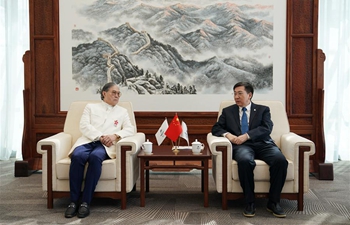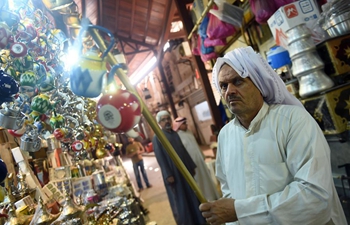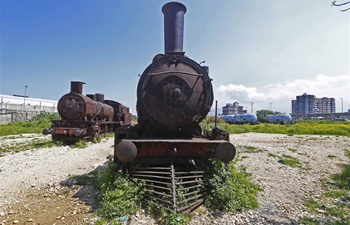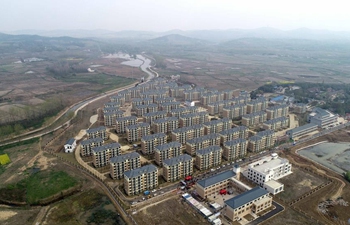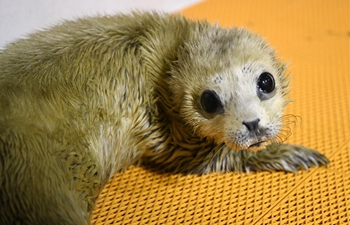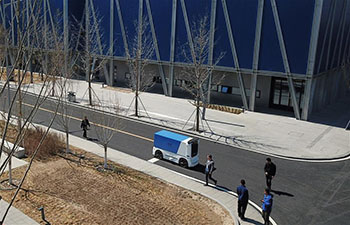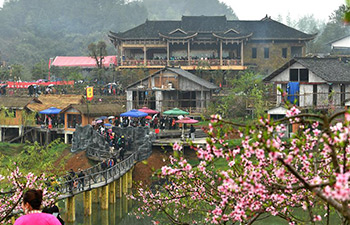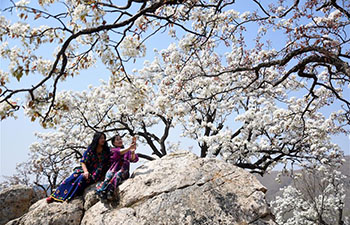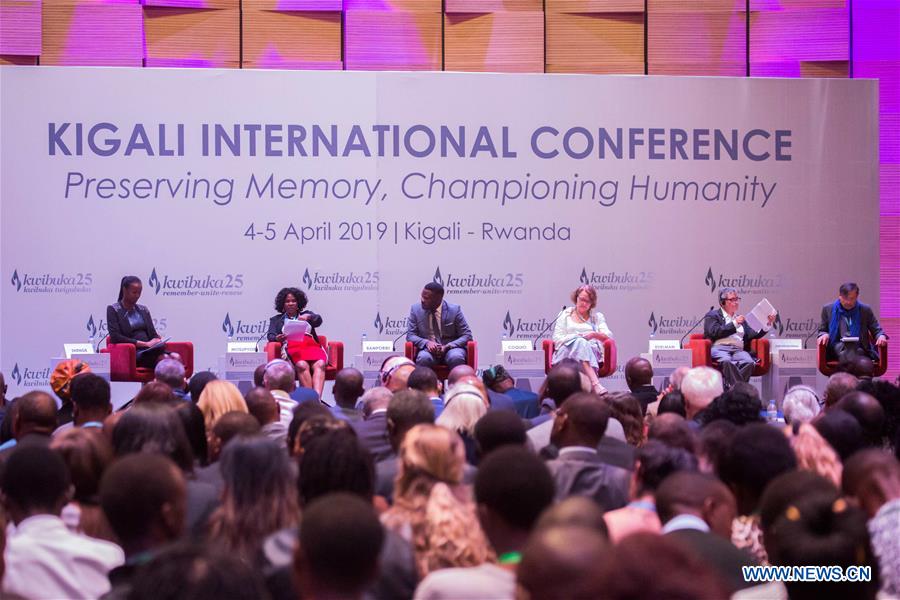
Participants discuss on a panel session during an international conference on genocide in Kigali, capital of Rwanda, on April 4, 2019. Over 500 participants including scholars and policy makers across the world on Thursday gathered at an international conference on genocide in Rwandan capital Kigali, where Rwanda's achievements in unity and reconciliation after the 1994 genocide were applauded. (Xinhua/Cyril Ndegeya)
By Frank Kanyesigye and Lyu Tianran
KIGALI, April 4 (Xinhua) -- Over 500 participants including scholars and policy makers across the world on Thursday gathered at an international conference on genocide in Rwandan capital Kigali, where Rwanda's achievements in unity and reconciliation after the 1994 genocide were applauded.
Meanwhile, on the sidelines of the conference, heads of Rwandan national commissions for anti-genocide and reconciliation revealed remaining challenges to Xinhua.
This year marks the 25th anniversary of the 1994 genocide against Tutsi. The annual commemoration of the genocide will be held from April 7 to July 4, which is in line with the period of the genocide.
APPLAUDABLE ACHIEVEMENTS
"We regret what happened 25 years ago in Rwanda, but are proud of what has been achieved today," said former Nigerian President Olusegun Obasanjo at the opening ceremony of the two-day conference.
Rwanda has managed to overcome traumatic experiences of the 1994 genocide, and has become a country easily accessible to foreigners with a conducive business environment for investors, said Obasanjo.
About 97 percent of Rwandans have reconciled and it is a good achievement considering the magnitude of the 1994 genocide, said Edouard Bamporiki, Chairman of National Itorero Commission, at a panel session.
The current generation in Rwanda has grown in a system where people are treated equally, and has got the right to education, said the head of the Rwandan civic education institution on culture.
It is true that people still have wounds and trauma but the future is promising, he said.
Rwanda's approach of using Gacaca courts and the traditional justice system as a home-grown solution has been helpful in the unity and reconciliation process of Rwandan people, said professor Boatamo Mosupyoe from the California State University in U.S. at the panel session.
Justice is key in the unity and reconciliation process of Rwandan people, said Mosupyoe.
REMAINING CHALLENGES
Heads of Rwanda's national anti-genocide and reconciliation commissions told Xinhua genocide denial, genocide ideology, reintegration of genocide convicts are among the challenges of the process.
New cases of genocide denial and genocide ideology are mainly shared on social media channels and other publications, said Jean-Damascene Bizimana, Executive Secretary of the National Commission for the Fight against Genocide.
There are people who continue denying genocide on popular social media platforms including blogs, which is a big challenge that needs concerted efforts to address, said Bizimana.
He also said acts of spreading genocidal denial information are mostly seen during the commemoration period.
The commission suspects that there are people staying in Rwanda who disguise themselves as living abroad, using nicknames to spread genocide ideology to escape being tracked, he added.
The current challenges to unity and reconciliation in Rwanda include reintegration of genocide convicts who completed their sentences but still fear to fully integrate into the society, said Fidele Ndayisaba, Executive Secretary of National Unity and Reconciliation Commission.
Unresolved cases of compensation to genocide survivors, trauma among genocide survivors and missing bodies of the victims of the 1994 genocide are also the challenges, said Ndayisaba.
To deal with genocide denial, the National Unity and Reconciliation Commission has partnered with the association of genocide survivors to strengthen unity and reconciliation among genocide perpetrators and survivors, explaining the impact of genocide ideology on reconciliation as well as reporting cases of genocide denial and ideology to judicial systems, he said.
The commission is also encouraging the culture of solidarity and patriotism among Rwandan people so that the future generation gets the right upbringing.
